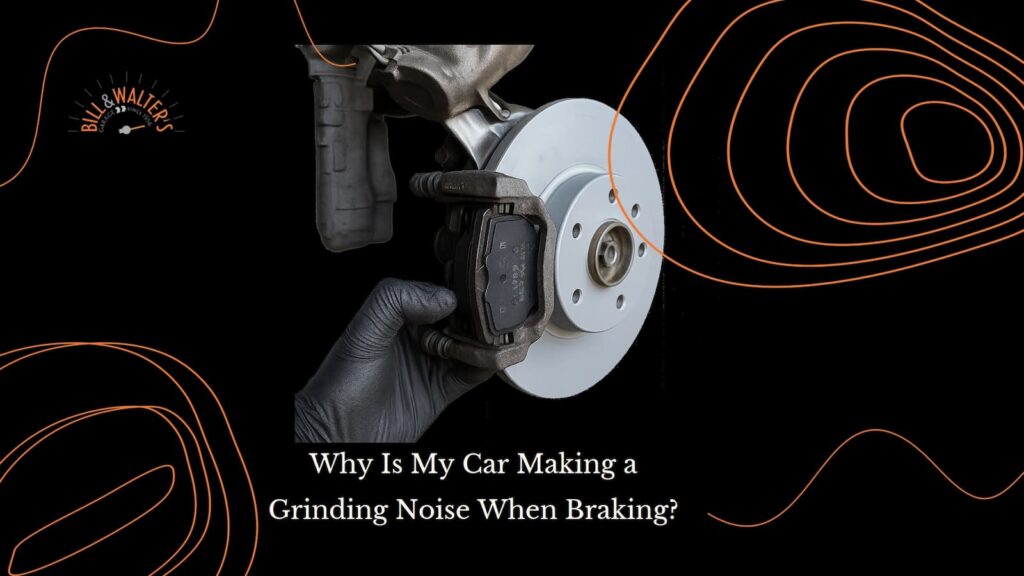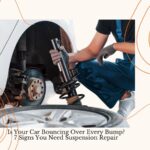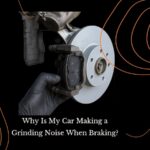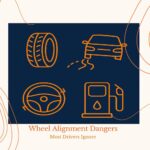Hearing a grinding noise when braking can be alarming for any driver. It’s one of those symptoms that shouldn’t be ignored, as it often signals a problem within the brake system. Acting quickly with a professional brake inspection can help diagnose the issue early and prevent more serious damage or costly repairs down the road. Understanding the causes and consequences can better prepare you to address grinding brakes effectively and keep your vehicle safe.
Common Causes of Grinding Brakes
Several issues can cause your brakes to produce a grinding noise:
- Worn-Out Brake Pads: Over time, the brake pad material wears down, and the metal backing plate begins to grind against the rotor.
- Debris Between Pad and Rotor: Dirt, gravel, or other debris caught between the brake components can cause grinding sounds.
- Warped or Damaged Rotors: Heat and wear can warp rotors, creating uneven surfaces that lead to grinding.
- Stuck Brake Calipers: When calipers stick, the brake pad may stay pressed against the rotor, resulting in constant friction and grinding.
- Lack of Lubrication: Certain brake system parts require lubrication; without it, friction can cause grinding.
Experiencing grinding brakes can indicate one or more of these issues, and the longer it’s left unchecked, the worse the damage can become.
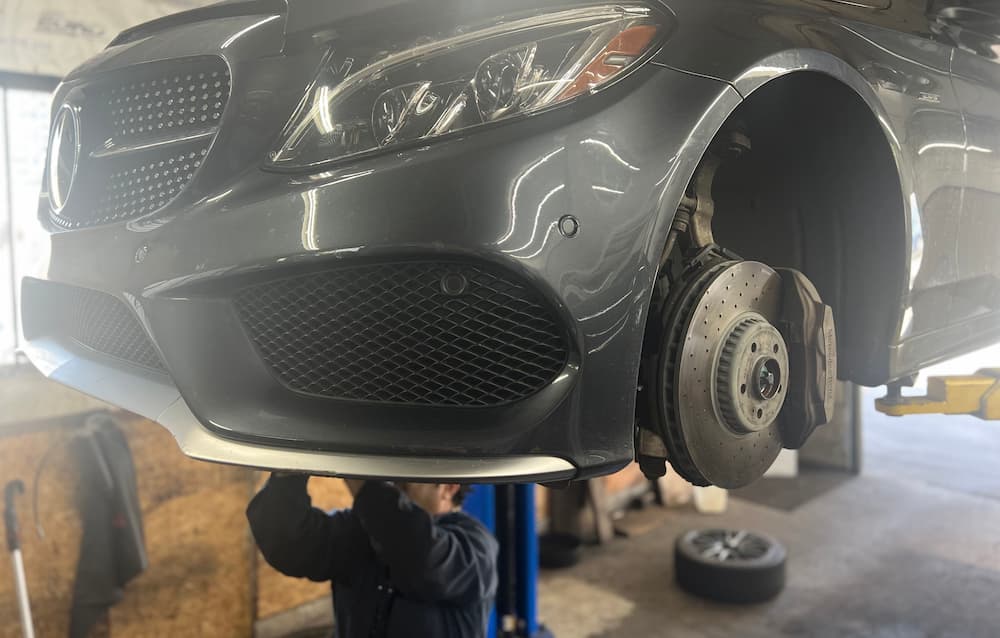
Risks of Ignoring the Grinding Noise
Ignoring a grinding noise from your brakes can lead to several serious problems:
- Severe Rotor Damage: Continued metal-on-metal contact can ruin rotors, requiring costly replacements.
- Caliper and Brake System Failure: The caliper and other critical parts can overheat and fail.
- Longer Stopping Distances: Your ability to brake effectively diminishes, posing a significant safety risk.
- High Repair Costs: Simple brake pad replacements can escalate into major repairs if neglected.
If you hear grinding, it’s crucial to address it promptly with a professional brake repair service to maintain your safety and avoid unnecessary expenses.
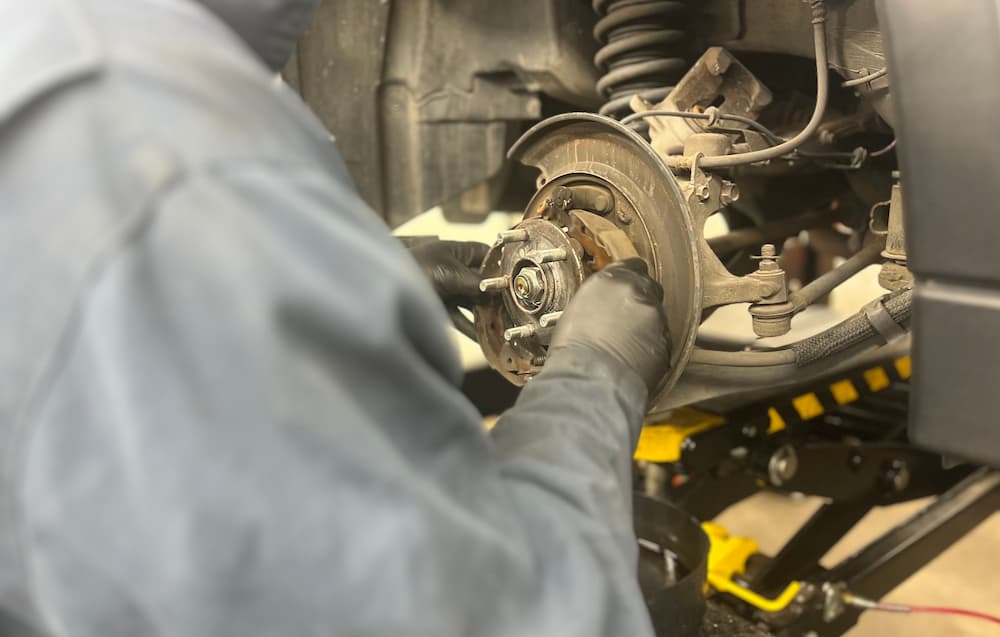
How Automotive Repair Shops in Burnaby Can Help
An experienced automotive repair shop can perform a comprehensive brake system check, including:
- Inspecting brake pads, rotors, and calipers
- Checking brake fluid levels and condition
- Diagnosing any signs of damage or excessive wear
- Recommending and performing necessary repairs or replacements
For those located in Burnaby, one of the many trusted options for expert automotive services, including brake repair and grinding noise diagnostics, is Bill & Walter’s Garage. Their seasoned technicians provide thorough inspections and quality repairs to ensure your vehicle remains safe and reliable.
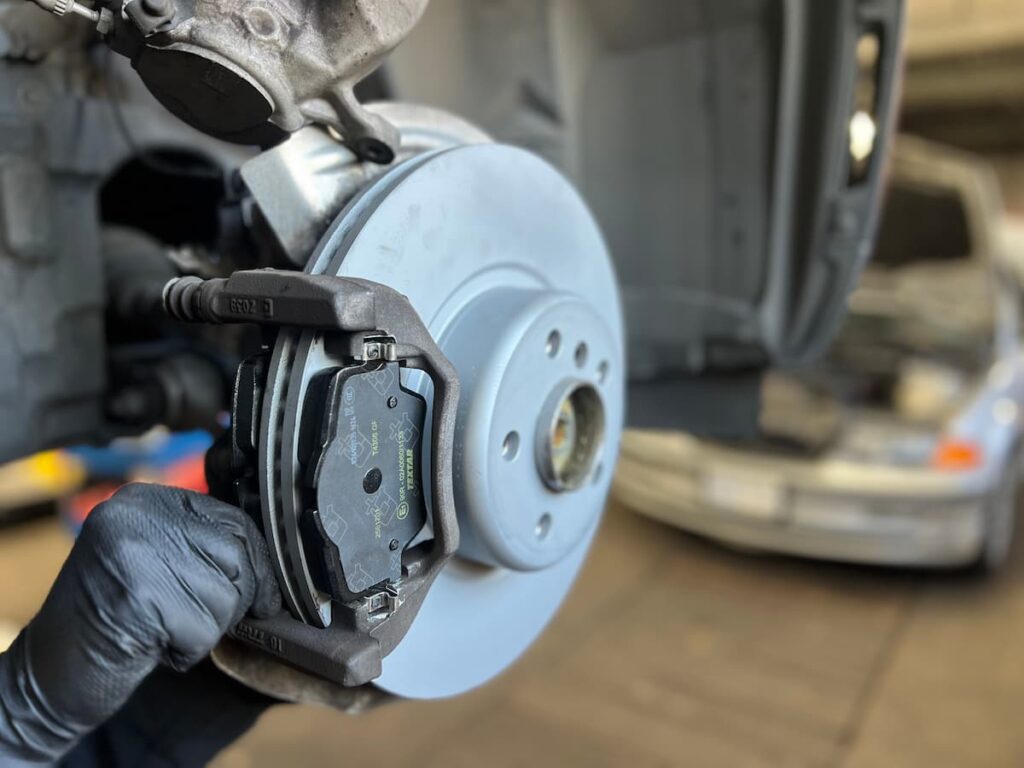
Signs You Should Get a Brake Inspection Immediately
Recognizing the early warning signs can save you from more extensive and expensive repairs. Watch out for:
- Continuous grinding noise during braking
- Spongy or soft brake pedal feel
- Longer distances required to stop
- Vibration or wobbling when braking
- Burning smell after driving
Scheduling a prompt brake inspection when you notice any of these symptoms is essential to your vehicle’s health and your safety on the road.
FAQs About Grinding Brakes and Brake Repair
- What causes grinding noises when braking?
Grinding noises often result from worn brake pads, debris between brake components, or damaged rotors. - Is it dangerous to drive with grinding brakes?
Yes, it reduces your braking effectiveness and can lead to complete brake failure. - How much does a brake inspection usually cost?
Costs vary but are generally affordable compared to the expenses involved with major brake system repairs. - Can I fix grinding brakes myself?
While minor fixes are possible for experienced individuals, professional inspections are recommended to avoid missing hidden issues. - How long can I drive after hearing grinding sounds?
It’s not advisable to drive once you hear grinding; immediate inspection is necessary. - What happens if I delay brake repair?
Delays can lead to rotor damage, caliper failure, and costly full brake system overhauls. - Are grinding brakes always a sign of worn-out pads?
Not always; other issues like debris or rotor damage could also cause grinding. - How often should I get a brake inspection?
It’s wise to schedule a brake inspection at least once a year or immediately if you notice any issues. - What other noises could mean brake problems?
Squealing, screeching, or clicking noises may also signal brake issues that need attention. - Can grinding noises go away on their own?
No, grinding noises usually worsen over time and indicate ongoing damage.
Addressing brake problems early ensures your vehicle’s reliability, your safety, and helps you avoid expensive repairs in the future.

